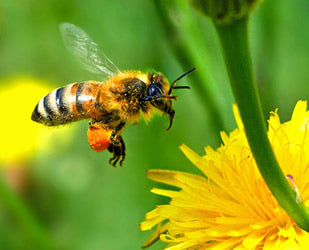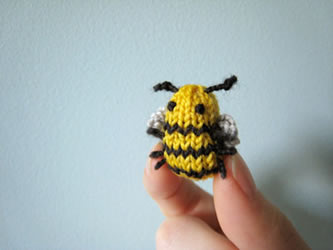 My son has just finished a school project about the honey bee...
My son has just finished a school project about the honey bee...
...for his closing assembly he had to remember a honey bee fact to say out loud in front of the school and parents. As with many of these situations, I spent much preparation time with him in the lead up, helping him to remember the words he had to say, but often in the past had not really properly engaged with what the words meant in the rush of tea cooking, homework, hoovering and tripping over cats that need feeding etc.
However, this time the words really struck me, "The queen bee is the only female to lay eggs in a hive. She can lay up to 2,500 eggs in the busy summer months." What incredible and fascinating creatures honey bees are, but they are so much more than that. Did you know that the honey bee is the number 1 pollinator of fruits and vegetables meaning that 1 in 3 bites you put in your mouth at mealtimes are down to the activity of the honey bee? Honey bees produce over 90 different types of crops of fruits, vegetables, nuts and cotton and work tirelessly to keep our eco system in order...and also of course provide us with beeswax, which as any Balmonds fan will know, is a hugely important ingredient for managing dry, sore skin. Without these busy little dudes our entire food chain and survival as we know it would be under threat. Impressive for such little creatures eh?
What would happen if the honey bee was no more?
Well this worrying situation could be fast becoming a reality with vast numbers of honey bees all around Europe and in the USA dying and disappearing with no clear and conclusive explanation why. "Colony Collapse Disorder" has quickly become a catastrophic occurrence, with some commercial beekeepers reporting bee losses of over 200 million bees in less than a two month period. What is so weird about CCD is that often the bees just seem to disappear. Very few bee corpses are found in relation to how many go missing.
What is happening with the honey bees?
Well there doesn't seem to be any one definite answer to this. Experts have found several possible explanations and sadly, none of them are terribly surprising. The first is the discovery of bee viruses, not just in dead bees but in healthy ones too. It would appear that just like us, bees can carry a variety of viruses without suffering symptoms, although again just like us, when bees are weak then these viruses can take a hold and become deadly.
Why are bees becoming weak?
 In days gone by, bees were able to thrive in the wild, living in their natural environment and the pollination system worked naturally, just as it should do. However, as with many things it seems that the interference of man has interrupted this efficient ecosystem. Up until the mid 19th Century, we used to believe that to get honey from bees we had to kill them, which we did for a long time - until we discovered that this was in fact not necessary and modern beekeeping was developed where honey was extracted with no harm to the bee or their hive. Following this discovery, beekeeping soon turned into a commercial business with farmers quickly realising the value of "hiring" honey bees to pollinate their crops. From here the honey bee became a business.
In days gone by, bees were able to thrive in the wild, living in their natural environment and the pollination system worked naturally, just as it should do. However, as with many things it seems that the interference of man has interrupted this efficient ecosystem. Up until the mid 19th Century, we used to believe that to get honey from bees we had to kill them, which we did for a long time - until we discovered that this was in fact not necessary and modern beekeeping was developed where honey was extracted with no harm to the bee or their hive. Following this discovery, beekeeping soon turned into a commercial business with farmers quickly realising the value of "hiring" honey bees to pollinate their crops. From here the honey bee became a business.
The mass movement of honey bees - pollination across continents
So now honey bees are trucked across country, sometimes thousands of miles and overseas so that they can be used by farmers in entirely man-made environments, with miles and miles of one kind of crop only, robbing the honey bees of their natural habitat, such as hedgerows and wild flower. The bees are expected to get straight to work in a totally alien environment,with absolutely no adjustment time. They do their job, pollinate the crop and then are shipped back again thousands of miles. As if this wasn't stressful enough, during this process they are presented with a cocktail of pesticides and insecticides, which are apparently not harmful to the honey bee, but one expert found traces of over 25 different chemicals in a bee corpse... this can't possibly be healthy. When we are prescribed medication by a health professional, one question that is always asked is "are you currently taking any other medication?" This is because of the risk associated with mixing one drug with another, is this not the case with the 25 different chemicals found in poor Mr Bee? Apparently the honey bee is a resilient little creature but surely this is too much?
What can we do?
We cannot let the honey bee become yet another endangered species due to human interference? We literally cannot survive without them. We have exploited them for too long now and it is time we gave them back what they need. So...plant lots of wild flowers, leave piles of wood in your garden for them to nest in and avoid using chemicals on your flowers. Make sure when you are buying and planting wild flower seeds that they are UK bee friendly seeds (if you are in the UK) so the local bees can enjoy them.
Of course if you are feeling really inspired you could even start your own beehive in your garden, check this link out to see if that is something you might like to get involved with. Lots of books and DVDs available to help teach you or give Paynes Southdown Bee Farms a call, they are very lovely (we are slightly biased as this is where all our beeswax comes from and has done for many years!) Paynes Books for Beginners

If you do decide to get involved with helping the honey bee we would love to hear from you. Send pictures or stories of anything bee related to customersupport@balmonds.com, we would love to hear from you. Let's help create some extra buzz for their plight and see if we can't help make a difference before it is too late.
 My son has just finished a school project about the honey bee...
My son has just finished a school project about the honey bee...